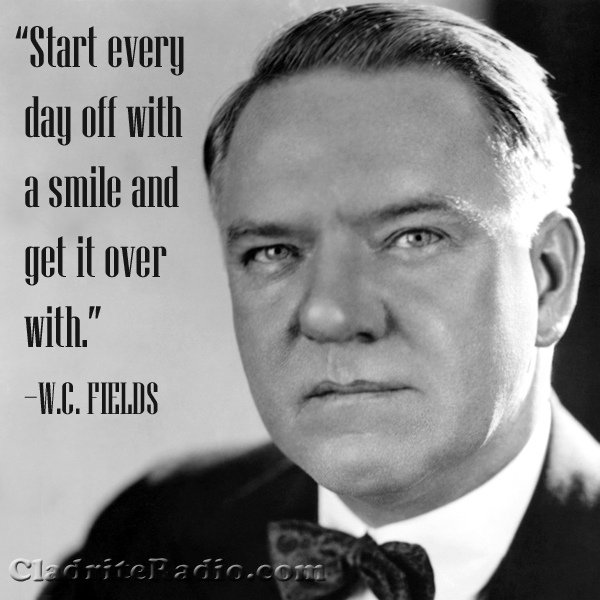W. C. Fields, star of vaudeville, Broadway, radio and movies, was born William Claude Dukenfield in Darby, Pennsylvania, 136 years ago today. You are encouraged to mark the occasion by raising a toast to him. It’s what he would’ve wanted.


W. C. Fields, star of vaudeville, Broadway, radio and movies, was born William Claude Dukenfield in Darby, Pennsylvania, 136 years ago today. You are encouraged to mark the occasion by raising a toast to him. It’s what he would’ve wanted.

2015 marks the 100th anniversary of W. C. Fields making his motion-picture debut, and TCM is celebrating tonight by airing four of his pictures.
The fun begins at 8 p.m. ET with The Bank Dick (1940), followed at 9:30 p.m. by It’s a Gift (1934), You Can’t Cheat an Honest Man at 11 p.m. and at 12:30 a.m., David Copperfield (1935), in which Fields plays Wilkins Micawber, a role that was initially earmarked for Charles Laughton.
NOT A SHOW IN A CARLOAD
HE’S FUNNY THAT WAY
“NEVER GIVE A SUCKER AN EVEN BREAK”